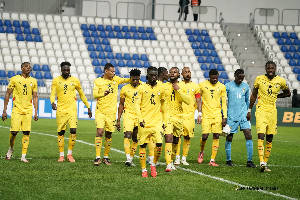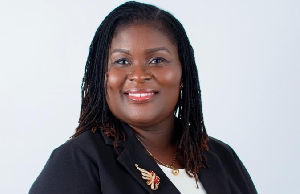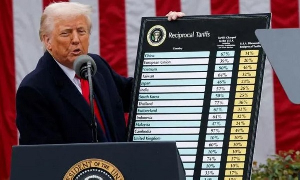No, we just can't let the Subah matter fade away like that. Not at a time when development finance is scarce and every last cedi must be made to count.
Here's a recap of what we know so far. On October 24, 2013, the Chronicle newspaper managed, in its own words, to "overcome all obstacles" and broke the Subah story, estimating that some "GH¢144 million had been paid to [Subah] Infosolutions [by the GRA] for a contract it had not executed." (A similar report for television had been mysteriously spiked by the station the day before).
The paper added: "Though this contract was signed in May 2010, Subah did not connect any cable to the nodes of the telecom companies, yet it was receiving monthly payments ranging between GH¢2m and GH¢5m."
In the firestorm that ensued, the GRA boss, George Blankson, took to the airwaves and disputed the GH¢144 million, pointing out that the correct figure was "about" GH¢75 million, representing 13.5% of additional or "incremental" revenue from the Communication Service Tax (CST) that Subah supposedly brought to the Authority in line with the terms of the contract.
He conceded that the contract was sole-sourced, a serious breach of the National Procurement Act, because it was neither a specialised service peculiar to Subah nor was there an emergency to warrant the suspension of the rules of competitive bidding. In the latter case, the law requires a short-term contract for goods or services acquisition, followed by competitive bidding after the emergency. A third condition, that of a threat to national security for which competitive bidding may cause undue delays, clearly did not apply. Effectively, therefore, there seemed to have been no justification for sole-sourcing Subah.
It has since emerged that the current Minister of Finance, upon getting wind of the contract in May 2013, immediately ordered its suspension and set up a committee to review the terms to ensure that the government got value for money. While the work of the committee is yet to be made public, the disclosures by Mr. Blankson raise more than a few questions that need to be interrogated openly and urgently.
The 13.5% rate (and the associated GH¢75 million fee) implies that Subah would have brought in GH¢555 million (the so-called "incremental revenue") more than the GRA collected to merit such a fee. But data from the government's budget statements from 2010 to 2013 show that the combined forecasted revenue from the CST for the period 2010-2012 was GH¢437,291,000, with a provisional outcome of GH¢411,475,720. This meant a shortfall of GH¢25,815,280 - or 5.9% of the forecast.
It is clearly impossible for Subah to have contributed GH¢555 million "more" to an amount that was smaller. In other words, the numbers don't add up, literally and figuratively.
But there is also a fundamental question of whether in the face of limited and shrinking financial resources this was the best way to spend public money, even under competitive bidding: Contract a company to do what the GRA's audit department is mandated to do and has been doing anyway. Indeed, auditing is an integral part of any tax agency worth its salt, and the fact that government would pay a company millions of cedis to do what it already does gives the impression that the contract was contrived to siphon money from the government fiscus into private pockets. There is no other way to look at it, given the facts as they are.
In his interactions with the media, the GRA boss also conceded that Subah had to perform only one aspect of the contract (that is, to review data from a CD rom given monthly by the telcos to the National Communication Authority (NCA)) because the telcos would not allow Subah to install machines on their nodes to monitor incoming calls.
It is hard to imagine that a contract of such magnitude and duration would be signed by GRA without due diligence by lawyers and technocrats alike to inform all affected parties, including the telcos, of their roles and responsibilities. This casts further doubt on the motives and contents of the contract.
The disclosure is also at variance with what the then minister of finance, Dr. Kwabena Duffuor, told Parliament in his 2012 budget statement. Paragraph 923 stated: "Madam Speaker, the implementation of the electronic cash register initiative and the introduction of the electronic monitoring equipment for Communication Service Tax (CST) have been completed. These have resulted in increases in domestic tax mobilisation."
The ministry could only have gotten this information from the GRA or the NCA, and here too, there are more questions than answers.
And then there's the elephant in the room that we are all skirting around. While we would all like to see a dynamic and prosperous Ghanaian private sector, it is doubtful that the best way to do this is to cook up schemes to fork out government money to a network of companies, all owned by one person, often under dubious circumstances. It represents neither value for money nor a sound strategy for private sector development - and by extension national development.
Indeed, it creates an "aggregated monopoly" and bastardises the concept of public-private partnership, under which businesses are expected to bring money to joint ventures where government money alone is not enough, rather than a conduit for channeling the little that government has to a single business.
Ultimately, it perverts the very essence of the development process, making cynics of well-meaning citizens precisely at a time when we need the industry and commitment of everyone.
General News of Thursday, 7 November 2013
Source: Nii Moi Thompson













